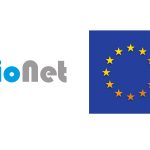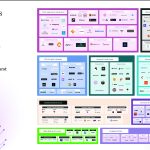
Gurhan Kiziloz’s Nexus Reports $546M H1 Revenue as Global Gaming Expansion Takes Shape
Nexus International reported $546 million in revenue for the first half of 2025, more than doubling its performance from the same period last year. The 110% year-on-year increase was driven by a broader international rollout of its digital gaming operations, with key contributions from Brazil, Europe, and recent global deployments of Spartans.com.
The first-half figure exceeds Nexus’s total revenue for 2024, which closed at $400 million. However, it remains below the company’s $1.54 billion full-year revenue target, placing increased emphasis on H2 performance to meet internal forecasts.
Founder and CEO Gurhan Kiziloz described the first six months as foundational. “We’ve crossed half a billion in six months,” he said. “That’s not a finish line – it’s a platform for compounding.”
Spartans.com, Nexus’s flagship crypto gaming and betting platform, expanded into more than 40 markets during Q1 and Q2. Designed to offer rapid crypto payouts and localized access to over 5,900 games, the platform played a central role in Nexus’s user acquisition strategy. The brand’s multi-language capability and mobile-first experience were optimized for international scale, supporting Nexus’s accelerated expansion into Asia, Africa, and Latin America.
Brazil remained Nexus’s top-performing region in H1, as Megaposta, its regulated sportsbook and casino brand, continued to gain traction in a fast-maturing iGaming market. Nexus was among the earliest operators to secure licensing under Brazil’s new framework, a position that translated into early user growth and higher engagement. Internal estimates suggest Brazil now accounts for more than 30% of Nexus’s total H1 revenue.
“The Brazilian market is demanding, but it’s also rewarding when approached correctly,” Kiziloz said. “We moved early, localized deeply, and focused on retention. That’s showing in the numbers.”
Lanistar, a newly launched casino property under the Nexus umbrella, also contributed to the group’s revenue acceleration. Now operating as a fully licensed iGaming brand, Lanistar entered H1 with targeted market launches across Europe and Latin America. Its expansion is expected to accelerate in Q3, with additional regulatory approvals pending in three new jurisdictions.
Kiziloz noted that brand integration and regional tailoring remain central to Nexus’s approach: “We don’t roll out products. We build locally relevant ecosystems. That’s what gives us staying power in competitive markets.”
Despite the strong H1 showing, analysts following Nexus’s private filings have noted the gap between current performance and the company’s $1.54 billion year-end goal. To close it, Nexus will need to sustain its growth rate while absorbing new market entries and ramping up brand activations in H2.
Kiziloz acknowledged the challenge but remained confident in the trajectory. “We’re not adjusting our targets. The systems are in place, and the teams are executing. It’s less about catching up and more about accelerating what’s already in motion.”
Nexus also reaffirmed its commitment to self-financing and fast-cycle decision-making. The company remains privately held with no outside investors or board of directors. This structural independence has allowed it to pursue high-risk markets and fast-paced product rollouts without external constraints.
As the competitive landscape in regulated iGaming intensifies, Nexus is positioning its brand architecture and operational model as a differentiator, emphasizing speed, vertical integration, and market-level specialization.
With the global gaming sector expected to exceed $150 billion in revenue in 2025, Nexus is preparing additional platform updates, regional partnerships, and new game content integrations to maintain momentum into Q3 and Q4. Details on new market entries are expected to be announced in August.












